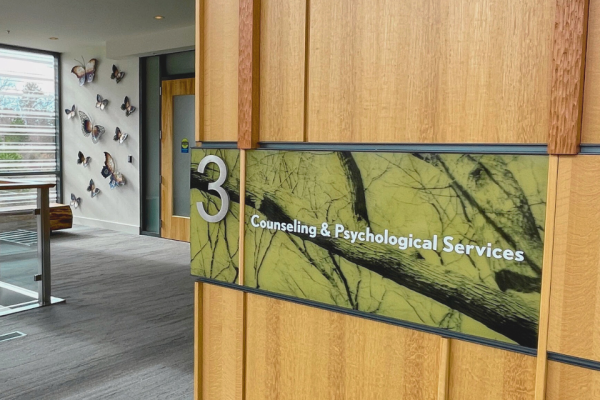APPIC Program Code: 141319
One intern will be selected for this concentration, which emphasizes training in university and student mental health.
The Student Mental Health concentration prepares interns for health service psychology in university mental health settings and other settings serving emerging adults. Training occurs within an interdisciplinary agency of psychologists, clinical social workers, clinical mental health counselors, and psychiatry professionals.
Interns in this concentration will spend 80% of their time, or four days a week, at Duke University Counseling and Psychological Services (CAPS) providing outpatient mental health services to a diverse group of undergraduate, graduate, and professional students. Three interns in other concentrations will complete a minor rotation at CAPS (40% of their time, two days a week). All four interns rotating at CAPS will share one day together to provide cohesion and continuity of care.
Rotations
- Duke Counseling and Psychological Services (4 days)
- Duke Center for Adolescent & Young Adult Substance Use Treatment Clinic (1 day)
Rotation Descriptions
Duke Counseling and Psychological Services (CAPS) provides a comprehensive range of psychological and psychiatric services to support students in managing psychological and social difficulties, with an immediate goal of strengthening their abilities to succeed in the University’s undergraduate, graduate, professional, and allied programs. Duke University is a privately supported institution with an enrollment of 17,499 students who come from 50 states and 124 foreign countries.
The University provides a stimulating learning environment in its ten colleges and schools: Trinity College of Arts and Sciences, School of Law, Divinity School, Graduate School, School of Medicine, School of Nursing, Nicholas School of the Environment and Earth Sciences, Pratt School of Engineering, Sanford School of Public Policy, and Fuqua School of Business.
Training emphasizes experiential clinical learning and incorporates evidence-based intervention approaches, including solution-focused brief therapy, CBT, DBT, and ACT. Training experiences include brief assessment, crisis intervention, individual and group psychotherapy, outreach, workshops, advocacy, and mental health consultation.
Service activities are balanced with individual and group supervision, seminars, clinical consultation teams, and professional development activities. Seminars will cover topics relevant to the clinical population, including identity and development, cultural considerations, mood and anxiety disorders, eating and body image concerns, executive functioning challenges, among others.
CAPS affirms and provides opportunities to increase awareness and knowledge of human diversity at the micro and macro levels of intervention. Training activities are designed to promote the acquisition of critical thinking skills related to individuals, environments, cultures, and systems and to develop culturally responsive psychological interventions.
Supervisors
- Leigh Spivey-Rita, PhD (CAPS Site Training Director)
- Chantal Gil, PsyD
- John Mitchell, PhD
Our treatment options include outpatient individual, family, and group interventions, using motivational interviewing, cognitive-behavioral relapse prevention, mindfulness, and DBT-informed and trauma-informed approaches.
Interns will participate in all outpatient activities, including cross-consultation team meetings, evaluations, and individual, family, and group interventions for alcohol/substance use and co-occurring conditions. Learn more about the CAST program
Supervisors

Clinicians from Duke CAPS and Duke Psychiatry are partnering to deliver high-quality counseling and behavioral health services to Duke students. The demand for these services is higher than ever, and they’re making a big difference for students on campus.